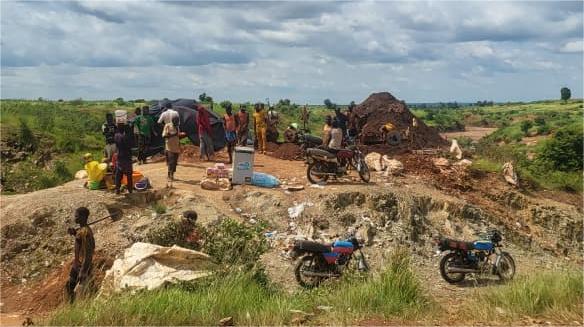Kadauri in Zamfara State thrives on gold mining, offering tales of instant wealth alongside stories of danger, poverty, and environmental destruction. The town captures the double-edged reality of Nigeria’s artisanal mining boom.
The town, located along the Gusau–Talata Mafara–Sokoto road, is now a hive of activity. Young men and women toil in makeshift pits, extracting and transporting ore in the hope of striking gold. Mining has become the backbone of the community’s economy.
Big rewards, bigger risks
The lure of instant wealth keeps the trade alive. “Last week, some young people made as much as 70 million and even 200 million naira from the site,” said resident Aliyu Mani. But the figures are impossible to verify, and most miners earn far less.
While a few become overnight millionaires, many remain trapped in poverty. The business, locals say, is driven more by luck than skill.
But the risks are immense. Miners rely on crude methods, often using mercury to separate gold from ore—exposing themselves and their families to toxic poisoning. Fatal accidents from cave-ins and collapsing tunnels are also common.
A fragile economy
Mining has spurred a thriving micro-economy of food vendors, tool sellers, and small businesses. Yet, with little regulation, most operate informally, without financial or legal protections.
Environmental degradation is worsening, with deforestation, polluted water sources, and degraded soil threatening long-term livelihoods.
Call for government action
Observers argue that only effective regulation can transform Kadauri’s boom into sustainable growth. Training, safety enforcement, and environmental standards, they say, are urgently needed.
With proper policies, mining revenue could be directed to schools, healthcare, and infrastructure, creating long-term benefits for the wider community.
Balancing promise and peril
For now, Kadauri reflects the contradictions of artisanal mining in Zamfara: a source of hope, but also of danger. Unless the industry is reformed, the wealth it generates will remain fleeting, while the costs endure.
By Buhari Abubakar Hussaini


